Content
- The origins of the formation of the concept
- Definitions from various researchers
- Classification
- Characteristics and properties
- Functions and role
- Forms of manifestations
- How to develop
- Methods for developing lateral thinking
- Methods for developing sensory abilities of the brain
- Spatial memory development method
- Methods for the development of speech and communication skills
- Methods for developing creativity
- Video about the makings of psychology
The psychological nature of human ability belongs to the most important and complex topics of psychology. However, talents do not appear on their own, it is not an innate category of anatomical and physical personality traits. An innate quality is the inclinations on the basis of which abilities develop.
There are different types of inclinations, they can progress in different directions, in psychology these psychophysiological characteristics form an area of the psyche that provides activity and vitality person.
The origins of the formation of the concept
The nature of the appearance of certain inclinations, as individual characteristics, worried psychologists for a long time, and the points of view on the origins and definition of the concept at different stages of the development of psychology did not differ monotony. However, the most accurate definition of the psychological category was given by Boris Teplov.
According to the formulation of the Soviet psychologist and the founder of the school of differential psychology, the inclinations are a number anatomical and physiological characteristics of the nervous system of an individual in various activities with which a person is born. If you do not pay attention to the existing prerequisites, certain abilities without training may not develop.
The question of inclinations has gained relevance in the course of studying the characteristics of abilities and has excited the minds of scientists since the 16th century. After all, the presence of a predisposition to certain types of activity is not at all identified with the development of specific abilities.
For their occurrence, it is necessary to have a need together with the appropriate conditions of upbringing. Therefore, the transformation of inclinations into talents can be called a socially conditioned process, the search for a scientific basis for which scientists have spent more than one century.
The earliest historically answer to the exciting question about the nature of the inclinations can be considered the discovery made in the 5th century AD, which defined the human brain as the receptacle of the psyche. Ancient scientists paid great attention to the external parameters of the organ - volume, weight and shape. It was noticed that these characteristics in humans are much higher than in animals, which became the basis for the assumption that the inclinations depend on the total or relative (in relation to body weight) brain mass.
As a result, it turned out - the larger the human brain, the more inclinations a person has. Very soon, the theory was recognized as untenable, because the weight of the brain of a whale (7000 g) or an elephant (5700 g) is much larger than a human's (1470 g), and the dependence of abilities on the weight of the brain was not confirmed.
Thanks to the successful study of the anatomical and physiological characteristics of the human body in In the 18th-19th centuries, a concept became popular that connected the inclinations not with the mass of the brain, but with its complex device.
Scientists have discovered the peculiarities of connections between different parts of the brain with the characteristics of psychological processes that form the cliches of human behavior. The result was the assumption that the presence of inclinations of a certain type depends on the development of specific brain structures.
By the beginning of the 20th century, the idea had become a doctrine called localizationism. His followers argued that the inclinations for individual abilities are limited to the areas of the cerebral cortex, and the fact of their growth can be associated with the presence of the corresponding type of inclinations. For example, the occipital region is associated with vision, the temporal regions - with hearing and vision, the parietal zones - with the function of movement.
In psychology, these inclinations are not at all an obligatory factor in the emergence of abilities; they represent only one of the conditions of the psychological process. The presence of even the most outstanding prerequisites without engaging in the relevant activity will not lead to the emergence of professionalism in this area.
The middle of the 20th century was marked by the refutation of the idea of localizationism, since it was established that the functioning of most of the abilities is controlled by all structures of the brain as a whole, and not by individual its plots.
On the basis of such statements, the theory of anti-localizationism was born, for example, the functionality of organs according to A. Ukhtomsky. I did not stay away from the anatomical and physiological interpretation of the problem of the inclinations of I. Pavlov, who connected them with the unique properties of the nervous system. However, his concept of the physiological basis of inclinations did not stand up to criticism.
By the end of the 20th century, the most recent version (according to Teplov) of the anatomical and physiological foundation of the inclinations connecting them with the genotype of the individual was formed. It has been proven that a person with impaired mental development lacks the inclinations to mental abilities, which is due to the presence of known abnormalities at the basis of the genotype.
Although the assumption about the genetic basis of abilities remains unproven even now. Adepts of modern psychology admit the fact of the existence of acquired inclinations, they become the basis for the formation of new, but more perfect abilities. True, they can be classified as elementary functions.
Definitions from various researchers
The main difference between inclinations and abilities is as follows. The former are given genetically and are an inborn feature or appear in the course of the natural development of the organism. The second is a phenomenon acquired through the learning process. That is, a person has the makings without applying any effort, engaging in an active type of activity. The formation of abilities requires active human activity in those areas to which his talents belong.
In psychology, this is not only an anatomical, but also a physiological feature of the brain and nervous system. The concept of abilities and their natural prerequisites are inextricably linked, therefore, the definition of the essence of talents among psychologists of different schools is not entirely identical.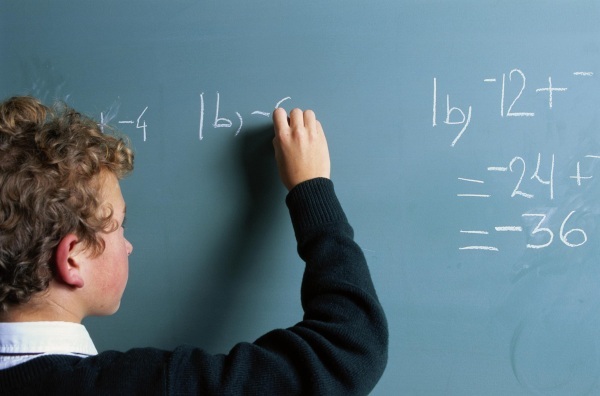
| Researcher | Point of view on the problem |
| Plato | The famous representative of the ancient school considered the inclinations to be a hereditary factor. From his point of view, nobility and talent are based on the origin, which influences the development of spirituality and morality. |
| Democritus | The founder of ancient Greek philosophy did not deny that humans have innate inclinations. It was them that he considered the foundation of the progressive development of society, and the spectrum of natural needs - an analogue of the driving force. |
| Teplov B. M. | A leading scientist of the Moscow School of Psychology, in the course of creating a coherent theory of abilities, singled out the concept of "inclinations" in a separate category. The professor called them the natural basis for the formation of predispositions. |
| Rubinstein S. L. | The founder of the Leningrad school agreed with the interpretation of the colleagues of the Moscow school, but denied the leading role of the inclinations. In his view, they are a characteristic of the speed of implementation (speed of communication). |
| Krutetsky V. BUT. | I did not share the idea of the leading role of inclinations in the development of personality. The scientist attributed the prerequisites to the anatomical features of the brain, the individual qualities of the nervous system, which do not guarantee the development of abilities. |
The basic foundation of the inclinations is due to the properties of the nervous system and psychomotor factors.
These are the criteria for the psychological characteristics of the regulation of various movements, and the basic concepts of psychomotor include:
- coordination - regulated activity of muscle groups;
- speed of response to specific events, activities;
- dexterity of both hands together with fingers.
The inclinations can be called, as it were, "dormant" forces of a person, a hidden potential that will not manifest itself if the individual does not engage in improving skills in the appropriate type of activity. And this requires the creation of social conditions that encourage learning. According to Belinsky V. G., the creation of man is a function of nature, but his development is ensured by society.
Classification
Separately taken ability cannot be conditioned by a special inclinations, each of them differs in polysemy and can become the basis for development in different directions. The adherents of the concept of innate (heredity) abilities argued their arguments by cases of early manifestation of giftedness.
For example, Mozart's musical talent manifested itself as early as 3 years old. Whole dynasties of gifted people belong to the facts of evidence of the inheritance of genius - representatives of the Bach family (60 people) were famous for their musical talents. At the same time, animal experiments have confirmed a genetic predisposition for learning success.
The inclination to ability, equally well suited to different types of activity, is a non-existent phenomenon. Within the framework of psychology, they play the role of a basis for obtaining high results only in a certain type of activity.
Teplov B. M. argued that the development of abilities from the inclinations occurs only as a result of activities accompanied by positive emotions. The scientist called the ability a deposit in the development process, classifying predispositions into two main categories.
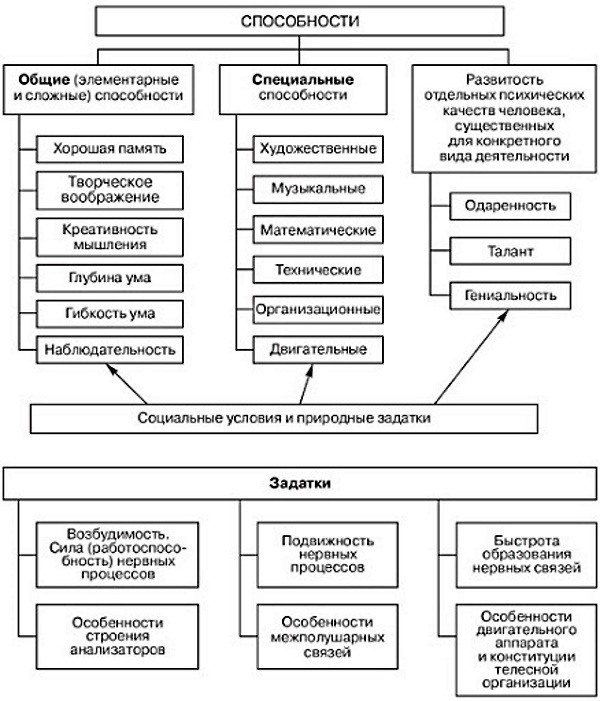
| Variety | a brief description of |
| Congenital | The qualities inherent in nature that a person receives at birth. For example, even in twin children, with the similarity of general characteristics, different states of the psyche, as well as styles of behavior. The reason is mainly due to the influence of hereditary and genetic factors. |
| Acquired | The result of the social development of the individual. An example is mathematical ability - to master higher mathematics, you will have to study its elementary foundations. In this case, elementary skills become the makings for mastering the highest mathematical knowledge. |
To enrich himself with the makings, an individual does not need to make any own efforts or actively storm certain types of social activity. At the same time, the ability for the types of professionalism inherent in nature will not be formed without the active involvement of a person in the work.
Therefore, the makings are divided into the following types:
- general - due to the general and particular structure and functioning of the body (nervous, gastric, cardiovascular system);
- special - reflect the work of brain structures associated with information (vision, smell hearing, motor function and others) and the motivational department (versatility of emotions, needs organism);
- the peripheral view of the inclinations is based on the work of the sense organs (peripheral);
- the sensory category is responsible for the strength of the processes of perception, the processing of information obtained through various senses.
In addition, the inclinations can be typological, based on the properties of the nervous system - speed and the strength of the formation of neural connections, the ease of formation of specialized cells (differentiation). The prerequisites of the anatomical type are due to the anatomical structure of the cerebral cortex, the regions of which are responsible for the structure of the analyzers.
Depending on the developing abilities, the natural predisposition to them is classified as follows:
- the inclinations for giftedness are manifested by exceptional memory, quick thinking, clarity of presentation of thoughts;
- a predisposition to musical talents is evidenced by a great desire to recognize and compose melodies, a craving for singing, playing musical instruments;
- the inclinations for literary creativity are noticeable by the tendency to fantasize, the quick composition of poetry, the transmission of inner feelings in special words;
- prerequisites for technical activity are manifested by an interest in scientific events, a quick study of technical documentation and the repair of mechanisms;
- a predisposition to creativity is recognized by an inquisitive mindset, the creation of original techniques, the ability to completely immerse oneself in a problem;
- the inclinations for going in for sports are manifested by energy and hand-eye coordination, natural endurance and dexterity, victory in competitions;
- a tendency to leadership is evidenced by the presence of a gift to convince, confidently communicate with strangers, the ability to take responsibility, correct judgments.
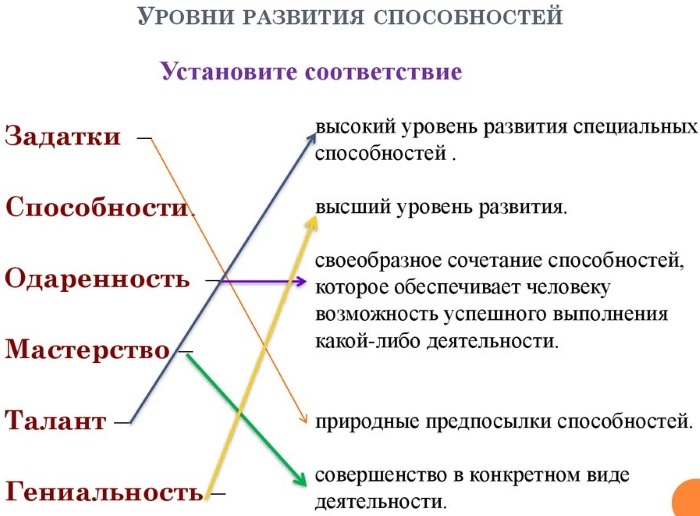
In psychology, inclinations are a category that is not always easy to recognize. For example, during his school years, Isaac Newton was considered a dumbass, which forced his parents to take him home due to his low learning ability. Another example - Fyodor Chaliapin was declared incapable of singing, which was the reason for the refusal to be admitted to the chorus. However, despite the influence of unfavorable conditions, the individual inclinations of outstanding personalities were manifested by impeccable talent.
Characteristics and properties
It will be possible to discover and develop abilities only in the process of the chosen activity, if there are inclinations for it and the creation of favorable conditions. Natural inclinations are characterized by ambiguity - the same types of them can become preconditions for different abilities. Another distinctive characteristic is the ability of the inclinations to acquire new qualities in the process of development.
A characteristic feature of natural inclinations in compensatory opportunities, that is, in the absence of some predispositions for the development of very necessary abilities, compensation occurs due to the development of necessary operation prerequisites. For example, for the formation of musical susceptibility, the deposit to absolute pitch is compensated by the loss of memory about musical intervals.
Functions and role
The successful realization of the inclinations is an important condition for the successful development of special talents. For example, the development of visual acuity and accuracy of movement form the foundations of the professionalism required for an artist, watchmaker, operator of complex production facilities.
The main function of the inclinations in psychology can be called the manifestation of abilities with a desire for their further development. For example, in the presence of good hearing, a person becomes a musician, hydroacoustician, gadiotelegraphist, even a highly developed animal is inaccessible.
Forms of manifestations
In order for inclinations to be transformed into skill, the inclinations must be discovered. This is especially true for conscientious parents striving for the harmonious development of the child's personality.
Psychologists refer to increased motivation together with the intense activity caused by it to the necessary conditions for the development of abilities according to a three-level scheme:
- Gifted nature has endowed man with the inclinations for successful work in various fields of activity. The result of giftedness is manifested by a high level of abilities for the successful implementation of activities.
- Talent they call a unique ability that allows you to achieve the highest results in a certain type of difficult occupation. Talent manifests itself in children who are able to actively learn, successfully moving in the chosen direction.
- Geniuses can be called a rarity. Many people have talents in various fields, but only a few are brilliant due to early detection of giftedness, motivation to continue learning.
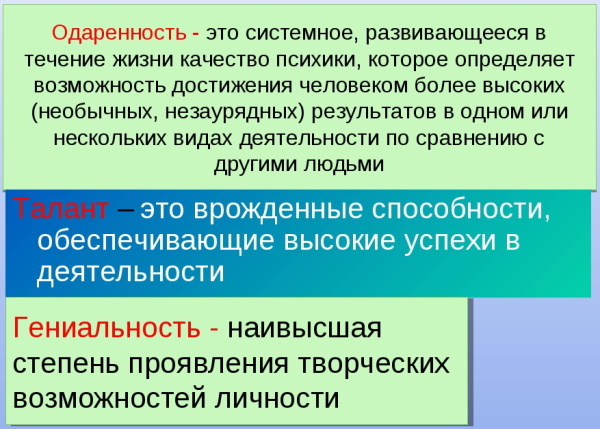 In psychology, inclinations are an important condition for the transformation of an individual into a personality. To understand their role of inclinations in human life, it is worth mentioning the essence of inclinations and interests. A tendency is called the desire to do a specific thing.
In psychology, inclinations are an important condition for the transformation of an individual into a personality. To understand their role of inclinations in human life, it is worth mentioning the essence of inclinations and interests. A tendency is called the desire to do a specific thing.
For example, a child's craving for drawing is interpreted as awakening the ability to paint. The inclination to it is accompanied by an interest in the color palette, the shapes of objects, and other criteria of artistic creativity. Inclinations with interests do not develop into abilities by themselves, but play the role of inclinations to them.
How to develop
In order to achieve high results in the field of the chosen activity, it is important to develop inclinations on time, otherwise they will atrophy, there is real evidence of this. For example, children who survived in the forest or stayed in the den of animals for a long time were deprived of elementary human abilities, and the inclinations for them disappeared forever.
Psychologists say that in order to develop professionalism from the perspective of the chosen case, they need to be engaged regularly and seriously. It is important to unquestioningly believe in the strength of your capabilities, not to be afraid of setting high goals, excluding low self-esteem of your work.
Methods for developing lateral thinking
Most adults think in a standard way, in order to reboot stereotypes, you need to break the patterns by performing atypical actions. For example, a right-hander should use his left hand to do the usual things. You can also change your route to work and home, which will stimulate the brain to find new solutions.
Methods for developing sensory abilities of the brain
It is better to develop sensorics from childhood, at the stage of the first three years, when the child's brain grows rapidly. Sensory games that stimulate the most important senses - touch and sound, taste and smell, vision, are suitable for children.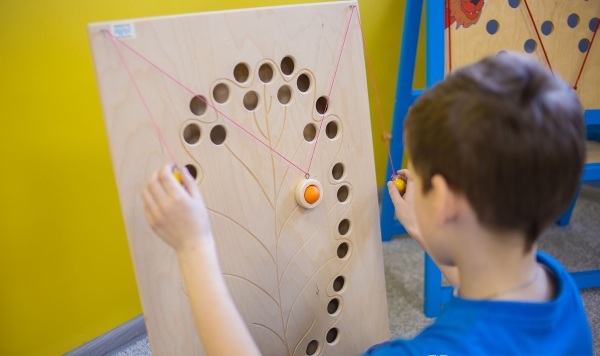
During the game, you need to ask the child to name the object, and then, with closed eyes, describe its features - appearance, features of smell, taste, sound. It is better for adults to turn to the method of orientation in space without the aid of sight, to learn to determine the type of thing by touch.
Spatial memory development method
The presence of spatial memory is considered an important skill that helps to save time in everyday life, better orientation in the surrounding world. Using play techniques, children are taught to navigate the functionality of their own body, recognize directions in space, determine the position of an object in relation to others things. For adults, the search for new routes is relevant - to work, to the store, for a walk. A prerequisite is to return the same way.
Methods for the development of speech and communication skills
For communication and conversation, they use the method of unprepared dialogue, encouraging the child to ask questions. Adults should practice using new speech patterns, non-standard communication situations. For example, say the standard phrase “hello” or “thank you” each time in a different language. You can also take on the role of initiating communication with a stranger by asking unusual questions.
Methods for developing creativity
There are many such techniques, it is important to choose the appropriate option for the student's age. Visual and combined games that develop the child's personality are suitable for children. Psychologists advise adults to change their view of the world - to take up a new business, try themselves in different roles, even in the absence of talent. For example, rearrange the furniture in the room, flavor a familiar dish with an unusual ingredient, join in singing or drawing, writing poetry.
As a result of hard work with great striving, people managed to develop abilities even in the absence of visible inclinations for them. There are many interesting examples in the history of psychology. This is the formation of the personality of the ancient orator Demosthenes, who since childhood had no obvious data for oratory. Only the persistent development of inclinations poorly expressed from birth served as the motivation for the transformation of an ugly lisping boy into a legendary tribune of the Ancient World.
Video about the makings of psychology
Abilities and inclinations:
